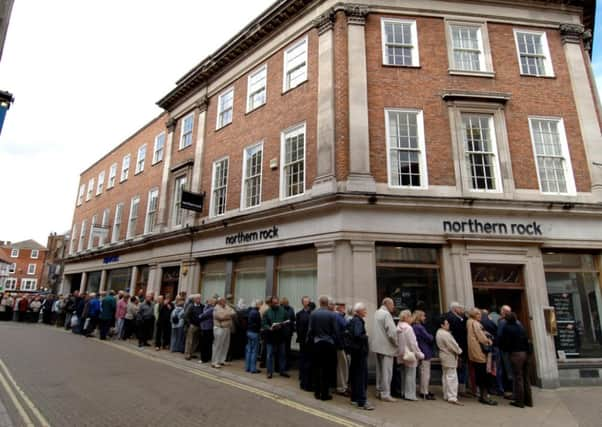Andrew Sentance: Spiritual values add up to better world for business


Business can take many shapes and forms – including large multinational companies, small and medium-sized enterprises (SMEs) and the self-employed (currently around 4.5 million, or 18 per cent of the private sector total).
Businesses are important contributors to our society – as places of work, as organisations we interact with as customers and through the impact that they can have on our communities.
Advertisement
Hide AdAdvertisement
Hide AdIf a culture of personal and collective responsibility permeates through the business world, it is also likely that our economy and society will benefit too.
The result is likely to be a more harmonious and contented society – and a more successful economy too.
As individuals, we do not like to do business with organisations which behave irresponsibly.
They will not command our loyalty and respect, and they will ultimately not win our business. We will not be well-motivated and hard-working employees or managers if we do not trust and respect our employers.
Advertisement
Hide AdAdvertisement
Hide AdThe same principles of responsibility also apply within the public sector.
Responsibility is an important Christian value. Christians believe we are accountable to God for our actions in our lives. And we are encouraged to demonstrate responsibility towards our neighbours and our wider society. The parable of the Good Samaritan (Luke 10.25 –37) highlights an example of responsible behaviour – not walking by on the other side. And the second part of Jesus’s summary of the Law encourages us to “love our neighbour as ourselves” (Mark 12.28 –31).
In business life, it is perhaps easier to identify irresponsible actions than to set out a comprehensive definition of responsible business.
In my view, there are three main dimensions to responsible business conduct: First – honesty, transparency, respect for the law and fair-dealing; second – a thorough assessment and consideration of the risks and consequences of business decisions and actions – not just in the short-term but over the longer-term too – so there are not unforeseen consequences; and third – a recognition that the responsibility of business does not stop at the factory gate or the office door.
Advertisement
Hide AdAdvertisement
Hide AdBusiness has a wider impact on society and can make a wider contribution too – helping to address social issues, engaging with local communities and encouraging voluntary work by employees.
Many banks and financial institutions failed to respect the second of these dimensions of business responsibility – properly assessing risks and consequences – which played a major part in the lending behaviours which ultimately led to the crisis.
We have also uncovered problems of honesty, transparency, respect for the law and fair- dealing – such as the Libor scandal and some of the allegations now emerging about conduct and practice in the foreign exchange markets.
Other aspects of business behaviour have been in the spotlight, particularly in the financial world – including the mis-selling of payment protection insurance (PPI) and concerns about payday lenders. Energy companies have attracted criticism for lack of transparency of their charges when the cost of domestic fuel has been rising sharply. The clothing trade has faced criticism for employment standards following the disastrous fire in Bangladesh in which over 100 people were killed. And the UK’s largest retailer Tesco has recently had to admit that its profits were mis-stated.
Advertisement
Hide AdAdvertisement
Hide AdJohn Cridland, the director-general of the CBI, has admitted that in the aftermath of the financial crisis “there’s a trust issue in some parts of the large corporate sector” and that bad behaviour in some sectors, notably banks, had contaminated the image of business more generally. Regulation is one tool we have available to ensure responsible business behaviour – and we see this in operation in a wide range of walks of business life: The minimum wage; employment protection; health and safety; consumer protection; and the regulation of banks and financial institutions.
If we rely exclusively on regulation to drive responsible business behaviour, however, we will probably end up with an over-regulated economy and society.
We need a society where the values applied in the world of business and at the workplace reflect notions of responsibility, fairness and honest dealing. That relies on the way in which individuals act and behave, and the values which they bring to the task of leading, managing and working in business.
Christians and members of other faith communities have a key part to play in promoting and encouraging responsible practices within business.